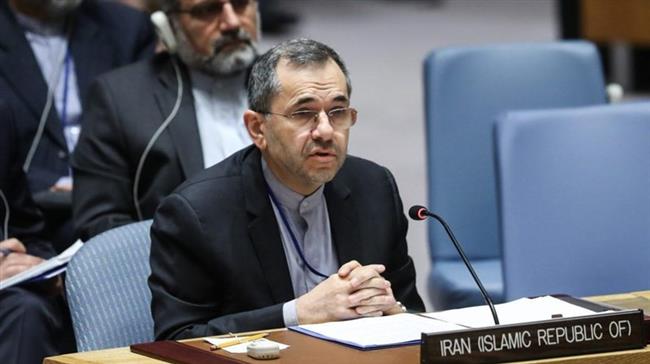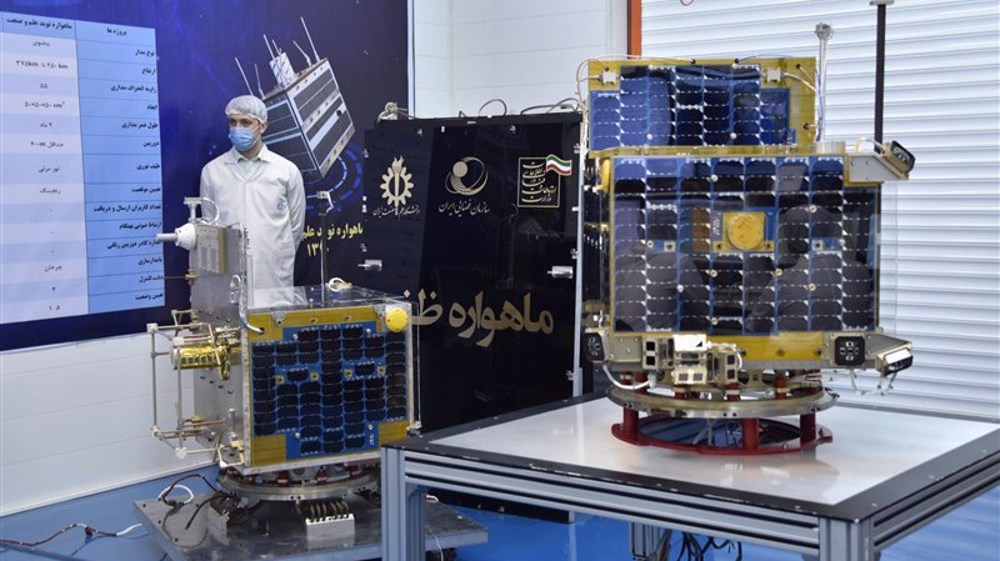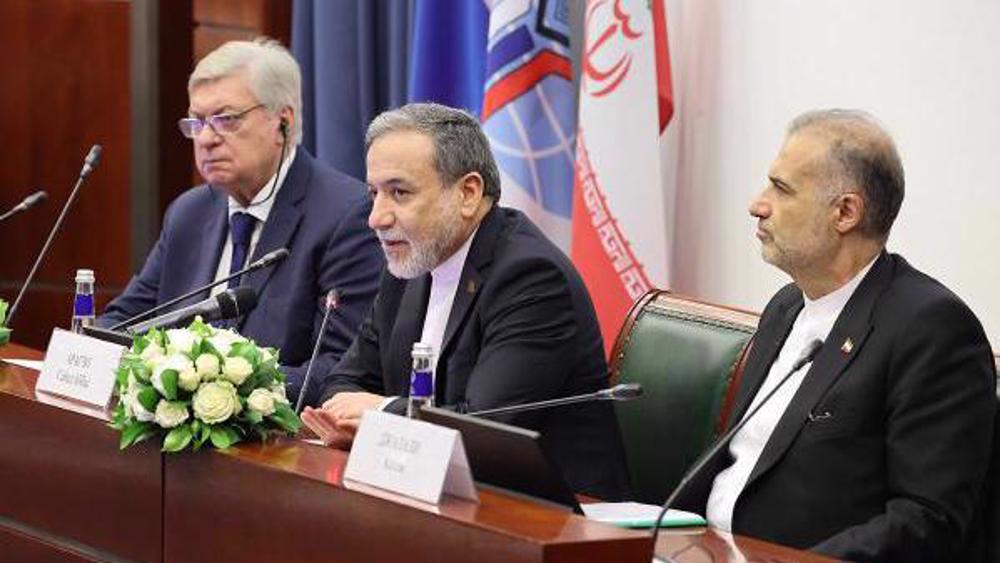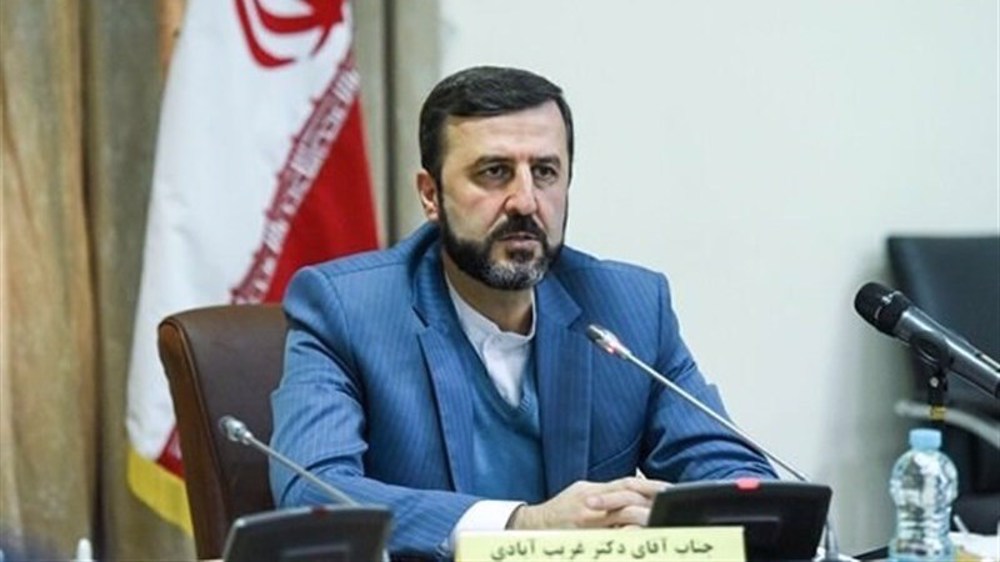US assassination of Gen. Soleimani gift to Daesh, regional terrorists: Iran
Iran’s ambassador to the United Nations (UN) has censured the US’ assassination of top Iranian commander Lieutenant General Qassem Soleimani as a gift to the Takfiri Daesh terrorist group and other terrorist outfits in the region.
Majid Takht-Ravanchi made the remarks in an address to a virtual session on “Strategic and Practical Challenges of Countering Terrorism in a Global Pandemic Environment” held at the UN on Friday.
Takht-Ravanchi denounced the targeted killing of General Soleimani as a “brutal and cowardly” act and said the assassination was an “obvious example of state terrorism” perpetrated in breach of international law.
“The United States’ brutal and cowardly assassination of General Qassem Soleimani, the champion of fighting terrorists in the region, and his companions, while on an official visit to neighboring Iraq, is another obvious example of State terrorism pursued in gross violation of the fundamental principles of international law, entailing criminal responsibility of its perpetrators,” the Iranian envoy to the UN said.
“This tragedy was a big gift to Daesh and other terrorist groups in the region who celebrated his assassination,” he noted.
In his address to the virtual session, Takht-Ravanchi called for collective and coordinated responses to terrorism, stressing that, “Unilateral coercive measures deny essential tools for a collective response to terrorism and hinder cooperation as well as genuine efforts in this endeavor, hence providing a breeding ground for terrorism.”
In a drone attack on January 3, the US assassinated General Soleimani, commander of the Quds Force of Iran's Islamic Revolution Guards Corps, and Abu Mahdi al-Muhandis, the second-in-command of Iraq’s Popular Mobilization Units (PMU), and a group of their companions near Baghdad International Airport.
Both commanders enjoyed deep reverence among Muslim nations over their endeavors in eliminating the US-sponsored Daesh terrorist group in the region, particularly in Iraq and Syria.
The operation was conducted with the authorization of US President Donald Trump.
Iran has issued an arrest warrant and asked Interpol for help in detaining the US president and several other US military and political leaders who were behind the assassination.
In a recent report, Agnes Callamard, UN special rapporteur on extrajudicial, summary or arbitrary executions, underlined the “unlawful” nature of the operation, and said the US had failed to provide sufficient evidence of an ongoing or imminent attack against its interests to justify the strike since General Soleimani posed no threat to the lives of other people.
On Thursday, the rapporteur said the US has put the world at unprecedented peril with its assassination of the commander, warning that it was high time the international community broke its silence on Washington’s drone-powered unlawful killings.
In response to the assassination, the IRGC fired volleys of ballistic missiles at a US airbase in Iraq on January 8. While Trump denied that the attack had caused any casualties, the US Defense Department said in an updated toll that at least 109 American soldiers received traumatic brain injuries in the attack.
After the assassination, Iraqi lawmakers approved a bill demanding the withdrawal of all foreign military forces from their country.
US sanctions on Iran tantamount to terrorism
Elsewhere in his remarks, Takht-Ravanchi lambasted the US sanctions against the Islamic Republic as an act of economic terrorism and said the so-called maximum pressure policy adopted by Washington was meant to deliberately target Iranian civilians.
“The United States’ maximum pressure policy against Iran is designed to deliberately and indiscriminately target innocent civilians with the sole purpose of causing pain and suffering among them. Therefore, these actions constitute terrorist acts and, in the broader context, economic terrorism,” he underlined.
The US reinstated the sanctions against Tehran in 2018 after leaving the 2015 landmark nuclear agreement between Iran and major world powers.
Washington’s departure and snapback of the bans came despite the nuclear deal’s multilateral nature and the United Nations Security Council’s enshrinement of the deal, officially known as the Joint Comprehensive Plan of Action (JCPOA).
Ever since quitting the deal, Washington has been trying to scare other countries of the world into abiding by its coercive measures, warning they would face punitive action if they failed to do so.
The International Court of Justice (ICJ) — known as the World Court — has ordered the US to lift the sanctions it has illegally re-imposed on humanitarian supplies to Iran.
Israel recognizes Somaliland as state, drawing international condemnation
VIDEO | Press TV's news headlines
VIDEO | Pakistan signs major defense export deal with Libya
VIDEO | Gaza children at Al-Nour school call for caravans to restore education
Critical Gaza hospital runs out of fuel, suspends most services
Yemen says ready for next inevitable war, urges Muslims to be vigilant
West uses sanctions to cling to fading dominance: Moscow
Iran to host tripartite naval drill in oceanic region: Commander













 This makes it easy to access the Press TV website
This makes it easy to access the Press TV website